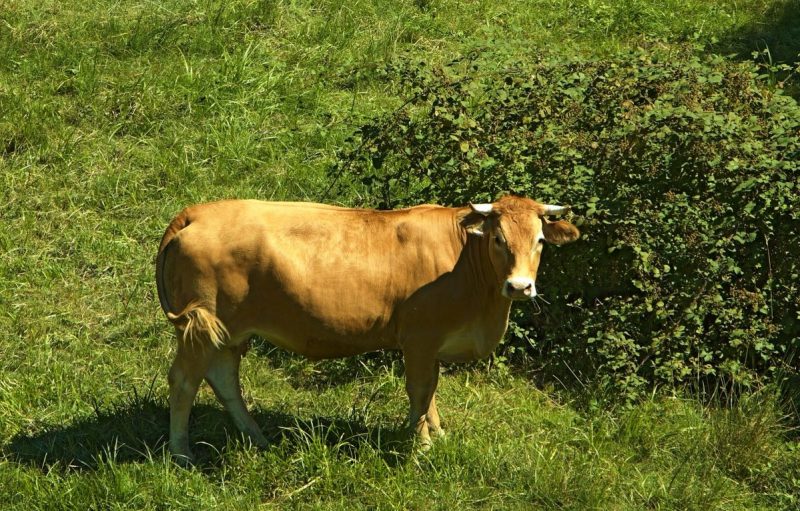Maintaining optimal rumen health is crucial for enhancing the overall health and performance of ruminant animals, which, in turn, drives profitability in any ruminant farming system. An alkalised diet is a proven strategy to achieve these goals effectively.
Benefits of an Alkalised Diet for Ruminant Health
An alkalised diet significantly supports rumen health, leading to improved digestion and nutrient absorption. This dietary approach balances the pH levels in the rumen, fostering an environment where beneficial microbes can thrive. These microbes are essential for breaking down fibrous plant materials, which are a staple in ruminant diets. A stable pH environment minimises the risk of acidosis, a common issue in ruminants that can severely impact their health and productivity.
Enhancing Animal Performance
When the rumen functions optimally, it translates to better overall animal health. An alkalised diet enhances feed efficiency, meaning animals can extract more nutrients from their feed. This leads to improved growth rates, milk production, and reproductive performance. Healthier animals are more productive and require fewer medical interventions, reducing overall farm costs.
Improved Growth Rates
Ruminants fed an alkalised diet often exhibit better weight gain and muscle development. This is particularly important for meat-producing animals, as better growth rates lead to shorter times to market weight, enhancing the efficiency of meat production operations.
Increased Milk Production
For dairy operations, an alkalised diet can result in increased milk yield and quality. A balanced rumen environment allows for better utilisation of dietary energy and protein, which are critical for milk synthesis. Improved milk production directly correlates with increased revenue for dairy farmers.
Enhanced Reproductive Performance
Reproductive health is another area where an alkalised diet can make a significant difference. Optimal nutrition supports better fertility rates and healthier pregnancies. This leads to higher calving rates and healthier calves, ensuring the sustainability and growth of the herd.
Reducing Reliance on Costly Supplements
One of the significant advantages of incorporating an alkalised diet is the reduced need for expensive supplements. Alkablends, specially formulated to maintain rumen pH balance, have been shown to decrease the dependency on costly bypass proteins, bypass fats, and rumen buffers. These supplements are often used to correct imbalances and deficiencies in traditional diets, but they can be a significant financial burden on farmers.
Cost Savings
By reducing the reliance on these supplements, farmers can significantly cut their feed costs. Alkalised diets provide a more natural and sustainable approach to nutrition, which not only benefits the animals but also the farmer’s bottom line.
Environmental Benefits
Reducing the use of synthetic supplements can also have positive environmental impacts. Less reliance on industrially produced supplements means a smaller carbon footprint for the farming operation. This aligns with increasing consumer demand for more sustainable and eco-friendly farming practices.
Customisable Diet Blends
Alkablends can be tailored to meet the specific needs of a farm. Each farming operation is unique, with varying available forages and feeds. Customisable alkalised diet blends allow farmers to create a nutrition plan that complements their existing feed resources. This flexibility ensures that each animal receives the optimal balance of nutrients, further enhancing health and productivity.
Tailoring to Available Forages
By analysing the nutritional content of the available forages, a nutritionist can help design an alkalised blend that maximises the benefits of these resources. This approach ensures that the diet is not only balanced but also cost-effective.
Addressing Specific Health Needs
Different herds may have specific health challenges that can be addressed through diet. For instance, a herd with a history of digestive issues may benefit from a blend with enhanced buffering capacity. Customisation allows for these specific needs to be met effectively.
Driving Farm Profitability
The ultimate goal of any farming operation is to be profitable. By supporting rumen health and improving animal performance through an alkalised diet, farmers can achieve higher productivity levels. Healthier animals produce more milk, grow faster, and reproduce more efficiently. Additionally, the reduced need for expensive supplements and medical treatments lowers overall operational costs. These factors collectively contribute to a more profitable farming operation.
Increased Revenue
Higher productivity levels directly translate to increased revenue. Whether through higher milk yields or faster growth rates, the financial benefits of an alkalised diet are clear. This increased revenue can be reinvested into the farm, supporting further growth and development.
Lower Operational Costs
Reducing the need for medical treatments and supplements lowers operational costs. Healthier animals require less veterinary care and fewer interventions, leading to substantial savings over time.
Implementing an Alkalised Diet
Transitioning to an alkalised diet involves a few strategic steps. Farmers should start by assessing their current feed resources and identifying areas where pH imbalances may be occurring. Consulting with a livestock nutritionist can help in formulating the right Alkablend tailored to the farm’s specific needs.
Assessing Current Feed Resources
A thorough assessment of current feed resources is the first step in implementing an alkalised diet. This involves analysing the nutritional content and pH levels of the existing forages and feeds. Understanding the starting point is crucial for designing an effective diet plan.
Formulating the Right Blend
Working with a nutritionist, farmers can develop a customised alkalised blend that addresses the specific needs of their herd. This blend should complement the existing feed resources and ensure a balanced diet.
Regular Monitoring and Adjustment
Regular monitoring of rumen pH and animal health indicators is crucial to ensure the diet is having the desired effect. Adjustments can be made as needed to maintain optimal rumen conditions and animal health. Continuous evaluation and adjustment ensure long-term success with the alkalised diet.










